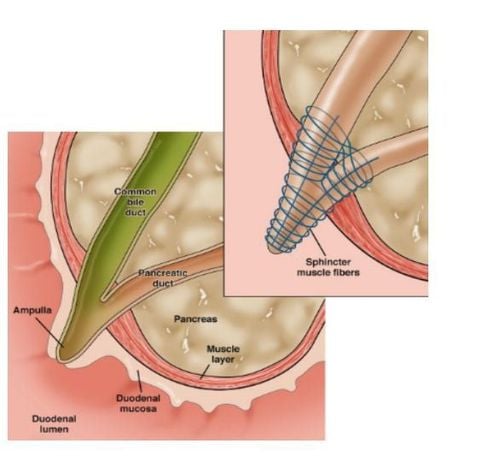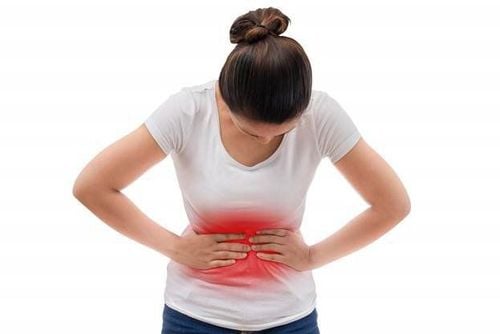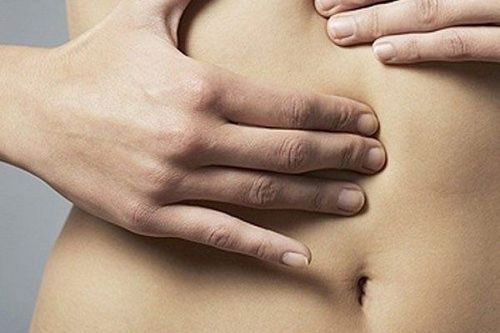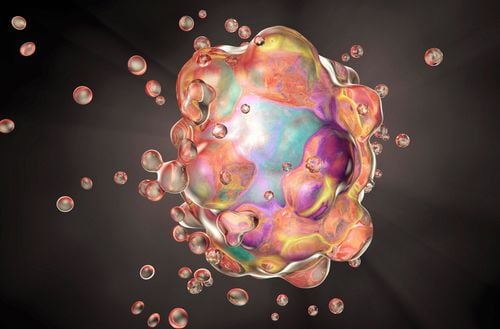When experiencing acute pancreatitis, complete fasting is essential to allow the pancreas to rest and recover. Once the inflammation is under control, the patient can gradually return to eating with an easily digestible diet. However, it is necessary to avoid foods that may stimulate the pancreas, as mentioned in the article below.
This article has been professionally reviewed by Dr. Võ Thị Thùy Trang, a Gastrointestinal Endoscopy Specialist at the General Examination & Internal Medicine Department of Vinmec Da Nang International Hospital.
1. Acute Pancreatitis and the Role of Fasting
The pancreas, also known as the "sugarcane leaf," functions as both an exocrine and endocrine gland.
- Exocrine function: The pancreas releases digestive enzymes that break down, metabolize, and absorb food.
- Endocrine function: The pancreas produces insulin and glucagon, crucial hormones for regulating blood sugar levels.
The pancreas' role in food digestion is as follows:
Pancreatic fluid, containing precursor digestive enzymes such as trypsinogen, chymotrypsinogen, amylase, and lipase, is secreted in response to stimuli like smelling, seeing, or tasting food. These enzymes travel through the pancreatic duct and enter the D2 segment of the duodenum, where a series of chemical reactions occur.
- Enterokinase enzymes in the duodenum catalyze the conversion of trypsinogen into active trypsin.
- Trypsin then activates chymotrypsinogen into active chymotrypsin by splicing off some amino acids.
- Chymotrypsin breaks down food polypeptides into smaller units for easier absorption through the intestinal lining.
Pancreatic fluid contains key digestive enzymes for lipids, proteins, and glucose, etc… along with bicarbonate ions to neutralize the stomach's acidic contents entering the small intestine. Notably, these enzymes remain inactive (zymogens) until they reach the duodenum, where they become active for digestion.
In certain cases, such as blockages or injuries, these enzymes may activate prematurely within the pancreatic ducts. This can lead to self-digestion of pancreatic tissue, causing acute pancreatitis or even pancreatic necrosis. A hallmark symptom of this condition is sudden and severe epigastric pain.

Why is fasting necessary in acute pancreatitis? In patients with acute pancreatitis, pancreatic tissue is damaged by self-digesting enzymes. Eating at this time is inadvisable, as stimuli from smelling, seeing, or eating food trigger more enzyme production. Increased enzyme levels worsen tissue damage, worsening the condition and raising the risk of complications or even death. Therefore, fasting during the early treatment phase allows the pancreas to rest and recover. Nutrition can be provided intravenously during this period.
2. Nutrition During Acute Pancreatitis Treatment
Seeking immediate medical attention is crucial when signs of acute pancreatitis appear. Patients will be provided prompt consultation and treatment to help minimize potential complications.
In mild cases, patients may be prescribed oral medications and monitored in the hospital. Once symptoms improve and no complications are detected, they can continue treatment at home with periodic check-ups.

In severe cases, patients require urgent hospitalization for intensive care, including medication and fluid therapy. Acute pancreatitis is currently treated with intravenous fluids and pain medication. Critically ill patients are treated in intensive care units. Additionally, depending on the specific cases, surgery may be needed to remove damaged or dead tissue to prevent infection spread.
Moreover, treatment for acute pancreatitis may vary depending on the cause. For example, if gallstones cause acute pancreatitis, surgery to remove the stones or gallbladder may be necessary for a quick recovery and to prevent recurrence.
During treatment, patients should pay close attention to the following notes:
- During the early treatment phase, patients should fast completely and only resume eating under medical guidance.
- Avoid alcohol and smoking, as these are primary causes of acute pancreatitis.
- Adopt a healthy diet, rich in vitamins and low in fats, oils, and sweets.
- Stay hydrated with at least 2 liters of water daily.
- Balance rest and work, avoiding stress.
Complete fasting in the early days of acute pancreatitis treatment is crucial for optimal recovery. This condition is closely linked to daily dietary and lifestyle habits, so strictly following the doctor’s instructions is vital for restoring pancreatic health and function quickly.
Dr. Võ Thị Thùy Trang has nearly 20 years of experience at Da Nang General Hospital, specializing in gastrointestinal medicine, hepatology, and pancreatology. She performs over 1,500 endoscopies annually, including diagnosing gastric and colon conditions like inflammation, ulcers, polyps, and cancer, detecting H. pylori, and identifying early gastrointestinal cancers. Additionally, she performs therapeutic endoscopy techniques such as bleeding control for gastrointestinal hemorrhage, esophageal variceal ligation for cirrhosis, and endoscopic polyp removal.
To arrange an appointment, please call HOTLINE or make your reservation directly HERE. You may also download the MyVinmec app to schedule appointments faster and manage your reservations more conveniently.









